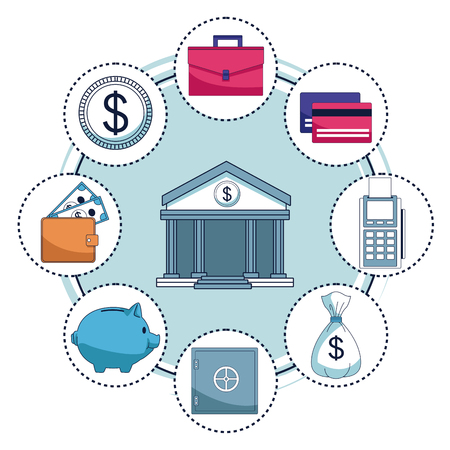1. Understanding Payment History in Your Credit Score
Your payment history is one of the most important factors in determining your credit score. Lenders use this information to assess how reliable you are when it comes to repaying borrowed money. Simply put, making on-time payments consistently helps build a strong credit score, while missed or late payments can have a negative impact.
How Payment History Affects Your Credit Score
Payment history typically accounts for about 35% of your overall credit score, making it the single most influential factor. This means that even one missed payment can cause a noticeable drop in your score. Here’s a breakdown of how different aspects of payment history influence your credit:
| Factor | Impact on Credit Score |
|---|---|
| On-time payments | Significantly improves and maintains a high score |
| Late payments (30 days past due) | Mild to moderate negative impact |
| Late payments (60-90 days past due) | More severe damage to credit score |
| Accounts sent to collections | Major negative impact; long-term damage |
| Bankruptcy or foreclosure | The most damaging to credit score; stays on record for years |
The Importance of Consistency in Payments
Lenders want to see a consistent track record of responsible financial behavior. If you always pay on time, it shows that you are dependable and capable of managing debt effectively. On the other hand, frequent late payments signal financial instability and can make it harder to get approved for loans, mortgages, or even credit cards.
(1) How Long Late Payments Stay on Your Report
A single late payment can stay on your credit report for up to seven years, depending on the severity. However, its impact lessens over time if you establish a pattern of timely payments moving forward.
(2) The Role of Different Types of Accounts
Your payment history includes various types of accounts such as credit cards, auto loans, student loans, and mortgages. Each type contributes to your overall creditworthiness, so missing payments on any one of them can hurt your score.
(1) Credit Cards vs. Loans: Which Matters More?
Lenders consider all types of accounts when evaluating payment history. However, missing payments on revolving credit (like credit cards) might be viewed more negatively than installment loans because they indicate ongoing financial mismanagement.
(2) The Impact of Multiple Late Payments
A single late payment is bad enough, but multiple missed payments in a row can compound the damage to your score. If accounts are sent to collections or charged off by lenders, it becomes much harder to recover financially.
Tips for Maintaining a Positive Payment History
If you want to keep your credit score high, focusing on making consistent and timely payments is crucial. Here are some simple strategies:
- Set Up Automatic Payments: Many banks offer autopay options that ensure bills are paid on time every month.
- Create Payment Reminders: Use calendar alerts or mobile apps to remind yourself of upcoming due dates.
- Avoid Spending Beyond Your Means: Only charge what you can afford to pay off each month to prevent missed payments.
- Prioritize Debt Repayment: If youre struggling financially, focus on paying at least the minimum due amount on all accounts.
Your payment history plays a major role in shaping your financial future. By understanding how it impacts your credit score and taking steps to make timely payments, you’ll be setting yourself up for better borrowing opportunities and lower interest rates.
2. How Late or Missed Payments Impact Your Credit
Making payments on time is one of the most important factors in maintaining a healthy credit score. When you miss a payment or pay late, it can have serious consequences that go beyond just a temporary dip in your credit score.
How Late Payments Affect Your Credit Score
Credit scoring models, such as FICO and VantageScore, heavily weigh payment history when calculating your credit score. Even a single late payment can negatively impact your score, especially if its more than 30 days overdue. The later the payment, the more damage it can do.
(1) Impact Based on Days Late
| Days Late | Effect on Credit Score |
|---|---|
| 1-29 Days | May not be reported to credit bureaus but could result in late fees |
| 30-59 Days | Likely to be reported and may cause a moderate drop in credit score |
| 60-89 Days | Larger negative impact; lenders may impose penalties |
| 90+ Days | Severe damage to credit score; account may be sent to collections |
Long-Term Consequences of Missed Payments
A missed or late payment stays on your credit report for up to seven years. This can make it harder to qualify for loans, get approved for credit cards, or secure favorable interest rates.
(1) Difficulty Getting Approved for Credit
Lenders view a history of late payments as a red flag. If you frequently miss due dates, you might struggle to get approved for new lines of credit.
(2) Higher Interest Rates
If you do get approved for a loan or credit card after missing payments, lenders may charge you higher interest rates because youre considered a riskier borrower.
(3) Potential Account Closures
Credit card issuers and lenders may decide to close your account if they see repeated late payments, reducing your available credit and further impacting your score.
Steps to Avoid Late Payments
The best way to prevent these issues is to make payments on time. Setting up automatic payments, using calendar reminders, and budgeting effectively can help ensure you never miss a due date.

3. The Benefits of Making On-Time Payments
Paying your bills on time is one of the most effective ways to maintain a healthy credit score. Consistently making on-time payments can open doors to better financial opportunities, saving you money in the long run. Below are some key benefits of maintaining a strong payment history.
Improved Interest Rates
Lenders view borrowers with a solid payment history as low-risk, which often leads to lower interest rates on loans and credit cards. Lower interest rates mean you pay less over time, making borrowing more affordable.
Better Credit Card Terms
When you have a good track record of timely payments, credit card companies may offer you higher credit limits, lower fees, and better rewards programs. This gives you more flexibility in managing your finances.
Enhanced Financial Opportunities
A strong credit history can help you qualify for larger loans, such as mortgages or auto loans, with more favorable terms. It can also improve your chances of getting approved for rental applications, utility services, and even job opportunities in certain industries.
Key Benefits of On-Time Payments
| Benefit | Description |
|---|---|
| Lower Interest Rates | Qualify for reduced rates on loans and credit cards. |
| Higher Credit Limits | Creditors may increase your available credit over time. |
| Better Loan Approval Chances | Easier access to mortgages, auto loans, and personal loans. |
| Stronger Rental & Job Applications | A good credit score can improve approval odds for apartments and jobs. |
(1) Long-Term Financial Stability
Punctual payments contribute to long-term financial health by reducing debt stress and improving overall financial security. This habit helps you avoid late fees and penalties that can add up over time.
(2) Increased Trust from Lenders
Lenders are more likely to extend credit and provide better terms when they see a consistent pattern of responsible financial behavior. This trust can be invaluable when applying for larger financial products in the future.
4. Strategies to Ensure Timely Payments
Making on-time payments is crucial for maintaining a strong credit score. However, with busy schedules and multiple bills to manage, its easy to miss a due date. Here are some effective strategies to help you stay on track and avoid late payments.
1. Set Up Autopay
One of the easiest ways to ensure you never miss a payment is by enrolling in autopay. Most banks and lenders offer this feature, which automatically deducts your bill amount from your account on the due date.
Benefits of Autopay:
- Eliminates the risk of forgetting payments
- Ensures payments are always made on time
- Saves time by reducing manual payment efforts
2. Use Payment Reminders
If you prefer not to use autopay, setting up reminders can be an effective alternative. You can use calendar alerts, mobile apps, or even email notifications to remind yourself of upcoming due dates.
Ways to Set Up Payment Reminders:
| Method | Description |
|---|---|
| Email Alerts | Many banks allow you to receive email reminders before your due date. |
| Mobile Apps | Apps like Mint or PocketGuard can send notifications when bills are due. |
| Calendar Alerts | Add recurring events in your phone’s calendar with reminders set a few days before. |
3. Create a Monthly Budget
A well-planned budget helps ensure that you have enough funds available for your payments. Tracking income and expenses allows you to prioritize essential bills and prevent overdrafts or missed payments.
Steps to Build an Effective Budget:
- List all sources of income.
- Identify fixed expenses such as rent, loans, and utilities.
- Allocate funds for variable expenses like groceries and entertainment.
- Set aside money for savings and emergency funds.
- Adjust spending habits if necessary to cover all essential payments.
4. Arrange Due Dates Strategically
If your bills have different due dates throughout the month, it might be challenging to keep track. Some creditors allow you to adjust your due dates so they align better with your paycheck schedule.
How This Helps:
- Makes it easier to plan around paydays
- Avoids cash flow issues during certain times of the month
- Simplifies financial management by reducing scattered payment dates
By implementing these strategies, you can take control of your finances and maintain a positive payment history—ultimately protecting and improving your credit score.
5. Rebuilding Your Credit After Late Payments
Missing payments can negatively impact your credit score, but the good news is that you can take steps to rebuild it. By negotiating with creditors, improving financial habits, and consistently demonstrating responsible credit use, you can work towards a healthier credit profile.
Negotiating with Creditors
If youve fallen behind on payments, consider reaching out to your creditors to discuss options for getting back on track. Many lenders are willing to work with you if you communicate proactively.
(1) Request a Payment Plan
Many creditors offer hardship programs or flexible payment plans that allow you to catch up on missed payments without facing additional penalties.
(2) Ask for a Goodwill Adjustment
If you have a history of making on-time payments and missed one due to an emergency, some creditors may remove the late payment from your credit report as a goodwill gesture.
(3) Settle Past-Due Balances
If accounts are in collections, try negotiating a settlement where you pay a reduced amount in exchange for marking the account as paid.
Improving Financial Habits
Developing better money management habits can help prevent future late payments and strengthen your credit score over time.
(1) Set Up Automatic Payments
Enrolling in autopay ensures that at least the minimum payment is made on time each month.
(2) Create a Budget
A clear budget helps you track expenses and prioritize bills to avoid missing due dates.
(3) Use Payment Reminders
Set calendar alerts or use financial apps to remind you of upcoming due dates.
Demonstrating Responsible Credit Use Over Time
Your credit score improves when you show consistent responsible behavior. Focus on these key areas:
| Action | Impact on Credit Score |
|---|---|
| Paying bills on time | Avoids negative marks and builds positive history |
| Keeping credit utilization low | Lowers risk and improves creditworthiness |
| Avoiding new debt unless necessary | Keeps overall financial obligations manageable |
| Diversifying credit types | Adds depth to your credit report over time |
The key to rebuilding your credit after missed payments is consistency. By taking proactive steps and maintaining good financial habits, you can gradually restore your credit score and improve your overall financial health.

